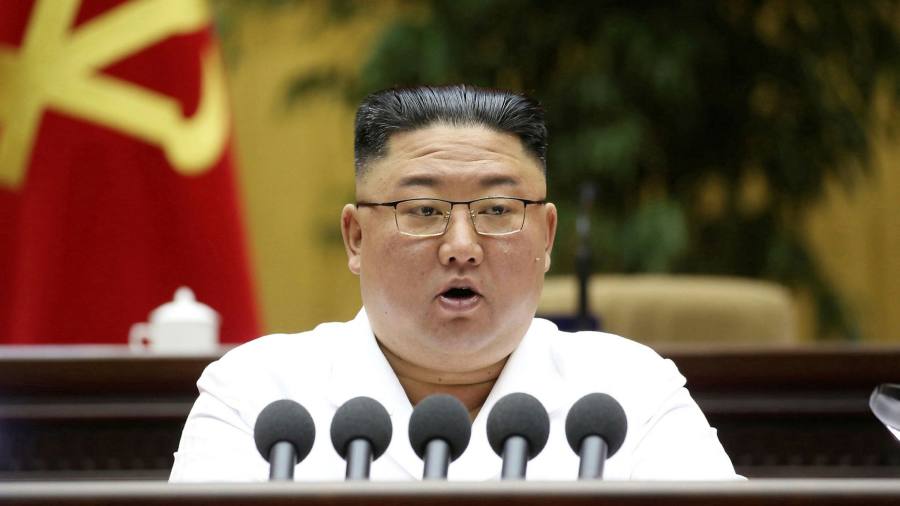[ad_1]
Kim Jong Un has warned North Koreans to brace themselves for hardship and isolation after making a rare public reference to the country’s devastating famine in the 1990s.
The North Korean leader, speaking to a conference of the ruling Workers’ Party of Korea on Thursday, warned of “many obstacles and difficulties ahead.â€
“I made up my mind to ask the WPK organisations at all levels, including its central committee, and the cell secretaries of the entire party to wage another, more difficult ‘Arduous March’ in order to relieve our people of the difficulty,†Kim said. The leader’s address, given to party cell secretaries, was reported by state media.
The warning was delivered as concerns mount among international human rights groups, non-governmental organisations and foreign diplomats over a humanitarian disaster inside the already-impoverished nation.
The reference of the “Arduous Marchâ€, a euphemistic name given to the period when famine killed millions, did not necessarily mean the situation inside the country was as bad as the 1990s, according to Rachel Lee, a former US government North Korea analyst and an expert in deciphering the country’s propaganda.
But, she said, Kim’s remarks appeared to “confirm the severity of economic difficulties†as well as the leader’s “resolve to tide over them without counting on improved external factors, namely improved relations with the USâ€.
“Internally, Kim is telling the people to brace yourselves for a long period of economic difficulties and hard work to improve the economy, similar to the ‘Arduous March’ in the 1990s,†Lee said.
She added: “Externally, he is sending the message that he will not lower the bar for negotiations with the US just to have the sanctions removed, that he views improvement of US-North Korea relations as a long-term issue and he will be braced for it accordingly.â€
Statistics surrounding the isolated country’s economy are notoriously unreliable. And international insight into the country has been further impaired after most foreign diplomats and international aid workers based in Pyongyang have been forced to leave the country. Their movements had been restricted as part of the government’s response to the pandemic.
Still, many experts believe that North Korea faces its worst economic downturn since the 1990s. A triple hit of strict border closures, trade sanctions and damage from flooding and typhoons last year has hammered the economy.
South Korea has urged the international community to consider easing sanctions and boosting aid for North Koreans.
But Pyongyang has resisted foreign assistance in delivering aid and vaccines because of fears of coronavirus transmission. The country also continues to advance its nuclear weapons programme and flout sanctions to raise cash via illicit activities, including illegal imports and cyber crimes.
Fears over North Korea come as Joe Biden’s administration reviews US policy on the country. Analysts broadly expect humanitarian assistance to be permitted under the new policy, but a significant easing of sanctions probably depends on verifiable steps towards denuclearisation.
[ad_2]
Source link





